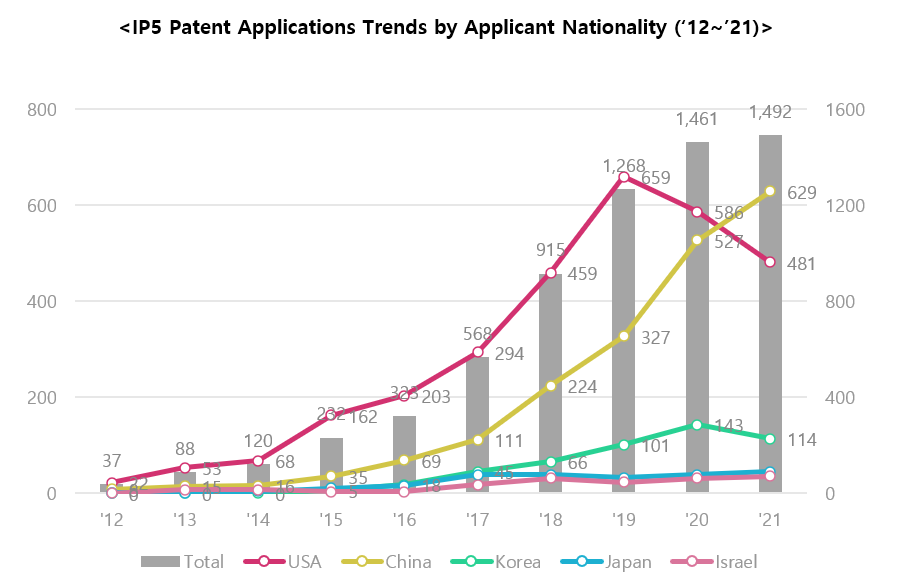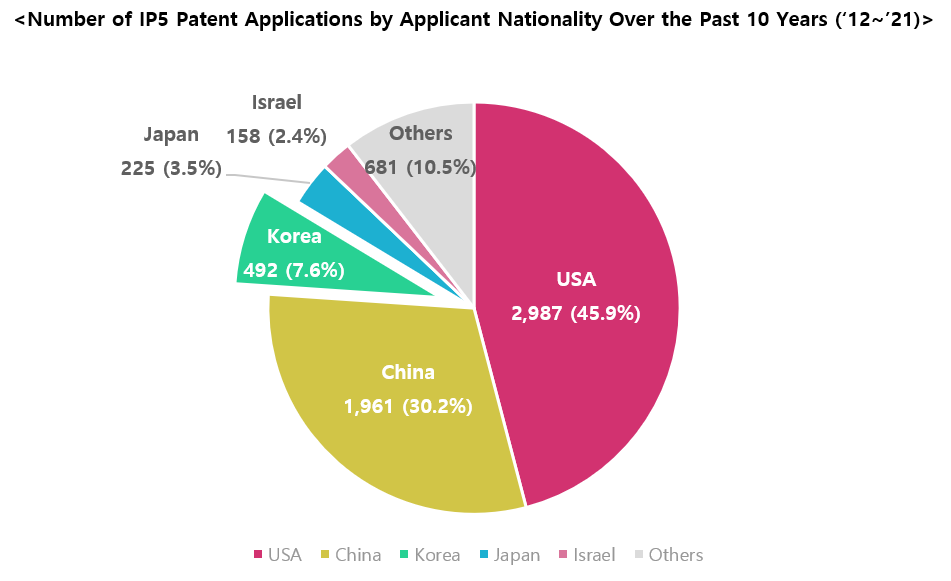
Search
Professionals

25-02-21
As AI technology increasingly influences industries and everyday life, AI-related security technology is gaining attention. According to the 2024-2026 SME Strategic Technology Roadmap by the Ministry of SMEs and Startups (Feb. 2024), the AI security market is valued at $24.3 billion in 2024 and is projected to grow to $53.1 billion by 2027.
AI security technology can be broadly categorized into two areas. The first is AI-powered hacking detection technology, which accounts for 85% of the overall AI security market and has become a key technology. However, its growth has slowed since 2019, suggesting it has reached a matured stage. The second area is security technologies designed to protect AI systems, which have gained significant attention, with an impressive average annual growth rate of 68.1% over the past five years (2017–2021).

According to data from the Korean Intellectual Property Office (KIPO), AI security-related patent applications filed with the IP5 patent offices were only 37 in 2012. However, with an average annual growth rate of 51%, the number surged to 1,492 in 2021. By nationality, the highest number of applications came from the United States (45.9%, 2,987 applications), followed by China (30.2%, 1,961 applications), South Korea (7.6%, 492 applications), and Japan (3.5%, 225 applications).
Among the top 10 companies with the highest number of AI security patent applications, U.S. companies dominated the list, with IBM and StrongForce included. The only non-U.S. company in the top 10 was Samsung Electronics, which ranked sixth.

The rapid growth of AI security technology and the increasing number of patent applications highlight the field’s importance for future industrial competitiveness. Particularly notable is the high growth rate (68.1%) of AI system protection technology. To gain a competitive edge in the global market, companies must prioritize R&D investments and develop robust patent portfolios in this area.